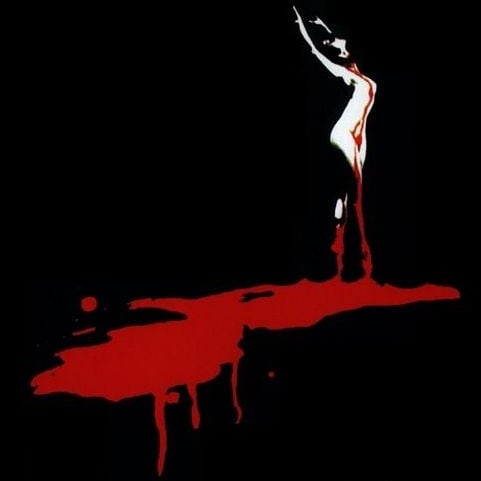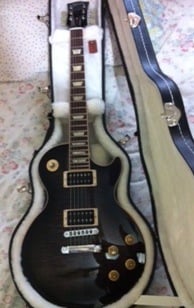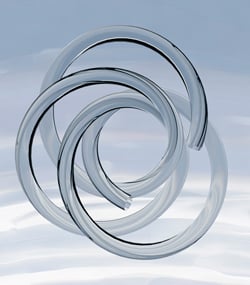| Author |
|
WeepingElf 
Forum Senior Member


Joined: August 18 2013
Location: Germany
Status: Offline
Points: 373
|
 Topic: Wider and narrower senses of "progressive rock" Topic: Wider and narrower senses of "progressive rock"
Posted: July 21 2015 at 09:58 |
|
As this matter has surfaced in the "Why so few American prog bands?" thread, I shall start a new thread for it here.
There is some controversy about what is prog and what is not. Progressive rock, as I understand it, is a particular stream of tradition within rock music that started in late 1960s England, and is characterized by:
1. Musical complexity, often but not always manifesting in long, multi-part pieces which are more composed than improvised, often but not always using form models from the "classical" music tradition such as the fugue, the rondo or the sonata form. This is the first dimension of "progressive": Progressive rock is musically progressive.
2. Ample use of electric and electronic keyboard instruments, such as Hammond organ, Mellotron and various types of synthesizers. Also, use of state-of-the-art studio and stage technology (or when it is not used, there is an idea behind that, such as evoking images of unspoilt nature by means of unadulterated acoustic instruments or a cappella singing). This is the second dimension of "progressive": Progressive rock is technologically progressive.
3. Sophisticated lyrics about a wide range of topics, including fantasy and science fiction, and often involving progressive ("leftist") social commentary. This is the third dimension of "progressive"; Progressive rock is culturally progressive.
Now, there is controversy about the boundaries. There is a lot of music that is often considered "prog", though they do not stand in the tradition of late 60s English classical progressive rock, and often lack one, two or all three of the characteristic properties of progressive rock I have listed above. There is, for instance, disagreement about when Pink Floyd were a prog band and when they were not, and whether artists such as Zappa, Cpt. Beefheart, the Grateful Dead or even the Velvet Underground can be considered prog bands.
Today, the alternative music press (at least here in Germany, I don't know about other countries) often features and reviews "prog rock" of which I just don't see what it has to do with classical prog, and how it shows the characteristics of prog. Examples of this kind of "prog rock" include Tool, Oceansize and similar bands.
I also don't think that "progressive" extreme metal is prog, as it often reduces the notion of musical complexity to show-offy instrumental acrobatics, and the cultural progressivity is absent - it basically shares the negative, cynical to reactionary ideology of extreme metal in general.
One could speak of progressive rock in a narrower and in a wider sense. I tend to use the term "progressive rock" in the narrower sense, using something like "experimental rock" or "advanced rock" for the wider category. One could do otherwise, though. I once read a scholarly thesis by a German student, Andreas Hinners, how used "progressive rock" in the "wide" sense, and referred to what I called here "narrow sense", "art rock", distinguishing it from "jazz rock" and "avant-garde rock" as other kinds of "progressive rock".
And of course, the boundaries are always blurry.
What do you think?
|
|
... brought to you by the Weeping Elf
"What does Elvish rock music sound like?" - "Yes."
|
 |
SteveG 
Forum Senior Member


Joined: April 11 2014
Location: Kyiv In Spirit
Status: Offline
Points: 20497
|
 Posted: July 21 2015 at 12:03 Posted: July 21 2015 at 12:03 |
I think most members would see the four letter word Prog as a musical style with distinct characteristics, in the same way that AOR is more or less a defined, if unofficial, musical style. So there's not much experimental music in a genre that is formulated. Progressive rock would be what, I think, what most members would define as experimental or avant garde, as this genre does not fit any particular formula. So basically, we have Prog rock as a defined musical style, and Progressive Rock as an experimental or avant garde music genre. Any questions about this will without doubt by addressed by micky later in the day. 
Edited by SteveG - July 21 2015 at 12:03
|
 |
Skalla-Grim 
Forum Senior Member


Joined: July 07 2015
Location: Europe
Status: Offline
Points: 305
|
 Posted: July 21 2015 at 13:18 Posted: July 21 2015 at 13:18 |
|
I hope it's OK if I include the "retro prog" subject because it's important if you want to define prog these days.
Some people would define Progressive Rock as any kind of rock music which turns the genre into something else, using exotic instruments, electronic sound effects or whatever. It just has to be NEW, whether it simplifies the genre or makes it more complex. Based on that notion these people dismiss every band which, in their opinion, sounds too much like the bands in the seventies did, blaming them for not being progressive.
I have a very different opinion.
In the 60s, Rock was a very simple kind of music, which allowed only traditional meters like 4/4 and 3/4. Also the choice of harmonies (e. g. A-D-E or A minor-F-G) and scales (major, minor, or pentatonic, with very few additional notes) was very limited.
The 70s prog bands extended those narrow possibilities, adding meters like 5/4, 7/8 and more. There were also more original harmonic developments (exploring the relationships based on the third step of a Major scale, I have a hard time expressing that in English) and scales (for example, the Phrygian mode - don't ask me for examples, but I'll try and think of it ... the Phrygian scale is like a minor scale but doesn't begin with a, b, c, but with a, b flat, c.)
I must admit that there were some composers in pop music who used advanced harmonies in the 60s, like the Beatles.
After the seventies (and many people seem not to be aware of that), the common musical structures of rock music were narrowed down to what they used to be in the 60s. Basically, that is still the case. As far as musical structures are concerned, pop and rock music is stuck in the 60s.
So are the traditional prog bands of today, who try to keep the achievements of 70s prog bands alive, "progressive"? Yes, they are! Because mainstream pop and rock music is still stuck in the 60s. There was no "progression" from the 70s to the 80s, there was a step back to the 60s.
You can talk about sound, visuals, or whatever. These (more or less) superficial values may change between decades and rock subgenres, but the relationship between today's mainstream and today's prog (traditional or avant-garde) is still like the relationship between the 60s' mainstream and the 70s' prog.
It is simply unfair to call some bands who play a wide variety of meters, harmonies and scales, "not progressive" because the remind you of the 70s (because they have a mellotron or whatever), and call other bands "truly progressive" because they use some sounds and effects which didn't exist in the 70s, though they stick to the narrow structural elements which were mainstream in the 60s, as they are today.
Edited by Skalla-Grim - July 21 2015 at 13:34
|
 |
WeepingElf 
Forum Senior Member


Joined: August 18 2013
Location: Germany
Status: Offline
Points: 373
|
 Posted: July 21 2015 at 16:37 Posted: July 21 2015 at 16:37 |
 Skalla-Grim wrote: Skalla-Grim wrote:
I hope it's OK if I include the "retro prog" subject because it's important if you want to define prog these days.
Some people would define Progressive Rock as any kind of rock music which turns the genre into something else, using exotic instruments, electronic sound effects or whatever. It just has to be NEW, whether it simplifies the genre or makes it more complex. Based on that notion these people dismiss every band which, in their opinion, sounds too much like the bands in the seventies did, blaming them for not being progressive.
I have a very different opinion.
In the 60s, Rock was a very simple kind of music, which allowed only traditional meters like 4/4 and 3/4. Also the choice of harmonies (e. g. A-D-E or A minor-F-G) and scales (major, minor, or pentatonic, with very few additional notes) was very limited. |
Right. Rock in the early 60s was simple and formulaic, adding little to the mid-20th-century rhythm & blues. The main innovation was that the musicians wrote their own songs. In the 50s, they didn't.
 The 70s prog bands extended those narrow possibilities, adding meters like 5/4, 7/8 and more. There were also more original harmonic developments (exploring the relationships based on the third step of a Major scale, I have a hard time expressing that in English) and scales (for example, the Phrygian mode - don't ask me for examples, but I'll try and think of it ... the Phrygian scale is like a minor scale but doesn't begin with a, b, c, but with a, b flat, c.) The 70s prog bands extended those narrow possibilities, adding meters like 5/4, 7/8 and more. There were also more original harmonic developments (exploring the relationships based on the third step of a Major scale, I have a hard time expressing that in English) and scales (for example, the Phrygian mode - don't ask me for examples, but I'll try and think of it ... the Phrygian scale is like a minor scale but doesn't begin with a, b, c, but with a, b flat, c.)
I must admit that there were some composers in pop music who used advanced harmonies in the 60s, like the Beatles. |
Sure. Some rock artists began to experiment with things beyond the "blues orthodoxy" in the mid-60s, and the Beatles were among them. From this, progressive rock was born.
 After the seventies (and many people seem not to be aware of that), the common musical structures of rock music were narrowed down to what they used to be in the 60s. Basically, that is still the case. As far as musical structures are concerned, pop and rock music is stuck in the 60s. After the seventies (and many people seem not to be aware of that), the common musical structures of rock music were narrowed down to what they used to be in the 60s. Basically, that is still the case. As far as musical structures are concerned, pop and rock music is stuck in the 60s. |
Quite so, though it is a bit of a simplification. But at the core you are right. Both punk and heavy metal (not to speak of roots rock, which is obvious) were backward-oriented movements which aimed at restoring the "true rock'n'roll" of the early 60s by eliminating everything that prog rock had added to the framework. No keyboards. No weird time signatures. No multi-movement suites. Etc. Punk more so than heavy metal, though. After all, heavy metal "fell guilty" of admitting some features of prog rock, though only in limited amounts, thereby paving the road for ... progressive metal (i.e. prog rock in metal attire; many metal aficionados maintain that progressive metal is not really metal).
 So are the traditional prog bands of today, who try to keep the achievements of 70s prog bands alive, "progressive"? Yes, they are! Because mainstream pop and rock music is still stuck in the 60s. There was no "progression" from the 70s to the 80s, there was a step back to the 60s. So are the traditional prog bands of today, who try to keep the achievements of 70s prog bands alive, "progressive"? Yes, they are! Because mainstream pop and rock music is still stuck in the 60s. There was no "progression" from the 70s to the 80s, there was a step back to the 60s. |
Spot on. Mainstream rock indeed did not progress, and that is probably the reason it died in the 90s. There was not only no progression, the existence of a progression is denied by the people involved with non-prog rock! Just have a look at britpop. They openly said they were reviving the 60s.
 You can talk about sound, visuals, or whatever. These (more or less) superficial values may change between decades and rock subgenres, but the relationship between today's mainstream and today's prog (traditional or avant-garde) is still like the relationship between the 60s' mainstream and the 70s' prog. You can talk about sound, visuals, or whatever. These (more or less) superficial values may change between decades and rock subgenres, but the relationship between today's mainstream and today's prog (traditional or avant-garde) is still like the relationship between the 60s' mainstream and the 70s' prog. |
Yep. Of course, mainstream rock as well as alternative rock and heavy metal, have seen styles come and go. One year, wah-wah is all the rage. The next year, snare drums have to sound as if there was an ocean of sweat on the drumhead. Or bass players have to sound like Bill Wyman. That has nothing to do with the structure of the music. Those are fashions that come and go. They become outdated within a few years. And all the while, rock songs are three minutes long, consist of intro-verse-chorus-verse-chorus-solo-verse-chorus-outro on three or four basic chords, and are about teenage love, as they have always been. No progress anywhere.
 It is simply unfair to call some bands who play a wide variety of meters, harmonies and scales, "not progressive" because the remind you of the 70s (because they have a mellotron or whatever), and call other bands "truly progressive" because they use some sounds and effects which didn't exist in the 70s, though they stick to the narrow structural elements which were mainstream in the 60s, as they are today. It is simply unfair to call some bands who play a wide variety of meters, harmonies and scales, "not progressive" because the remind you of the 70s (because they have a mellotron or whatever), and call other bands "truly progressive" because they use some sounds and effects which didn't exist in the 70s, though they stick to the narrow structural elements which were mainstream in the 60s, as they are today. |
I never doubted that "retro-prog" is prog, of course! Even if one has to admit that bands such as Wobbler or the Flower Kings add little new to the formula of classic prog, and I prefer more modern forms of prog, they are certainly prog in the sense that they stand in the tradition of the classical prog of the early 70s, and as you have pointed out quite well, they are still ahead of mainstream rock, which has fettered itself to the stage of development of the early 60s, give or take some superficial embellishments, which are subject to fashions and just won't last.
|
|
... brought to you by the Weeping Elf
"What does Elvish rock music sound like?" - "Yes."
|
 |
WeepingElf 
Forum Senior Member


Joined: August 18 2013
Location: Germany
Status: Offline
Points: 373
|
 Posted: July 21 2015 at 17:03 Posted: July 21 2015 at 17:03 |
 SteveG wrote: SteveG wrote:
I think most members would see the four letter word Prog as a musical style with distinct characteristics, in the same way that AOR is more or less a defined, if unofficial, musical style. So there's not much experimental music in a genre that is formulated.Progressive rock would be what, I think, what most members would define as experimental or avant garde, as this genre does not fit any particular formula. So basically, we have Prog rock as a defined musical style, and Progressive Rock as an experimental or avant garde music genre. Any questions about this will without doubt by addressed by micky later in the day.  |
Yes, this hits the nail on the head, or at least close to. It is a "blackbird problem": the blackbird is called blackbird because it is a black bird, but not all black birds are blackbirds. Likewise, progressive rock (the genre, what you call prog rock) is named thus because it is a genre of rock music which is progressive (as I wrote in my opening post, in three different but interrelated ways), but there is rock music which in some ways progressive but does not fall into the genre. The question is, which usage of "prog(ressive) rock" is right? Words always mean what the community of speakers use them for, but early usages usually take precedence. The term "progressive rock" was coined around 1970 for a particular genre of music, for the reasons I laid out in my opening post. Hence it means that. Later it was shortened to "prog rock", AFAIK in part by detractors who claimed that it wasn't actually progressive (most of those detractors said that punk rock was the true progressive movement in rock, but as I stated in my reply to Skalla-Grim's post, punk rock was a restaurative rather than a progressive movement), and subsequently, "progressive" became a cuss-word in rock discourse. Since about 20 years ago, however, there has been a new usage of "prog(ressive) rock" in the alternative rock scene, starting with bands such as Tool (who AFAIK were the first to whom this new usage was applied). So we now have two conventional meanings of "prog(ressive) rock", one in the field of classic rock, one in the field of alternative rock. Things like that may be confusing, but they happen. For instance, the word protolanguage is used in different meanings in the fields of historical linguistics and language origins studies. In historical linguistics, a "protolanguage" is the latest common ancestor of a given family of languages. Like Latin being the protolanguage of the Romance family. In language origins studies, a "protolanguage" is a hypothetical system of communication structurally intermediate between the kind of calls apes use, and full-fledged human language. Such systems would have been used by creatures such as Homo erectus. A "protolanguage" in the sense of historical linguistics is not a "protolanguage" in the sense of language origins studies, but in the popular press, both concepts are sometimes confused, leading to all sorts of funny (and sometimes not so funny) misconceptions about languages of the distant part. So what do the two kinds of "progressive rock" have in common that they share the same name? There are some superficial similarities. Both often use oddball time signatures; both frequently have pieces longer than the usual radio-edit single format. But there the similarity ends. Some people claim that Tool were influenced by King Crimson, but they have actually as much in common as a skinhead and a Rastafarian (who at least have in common that they are into Jamaican offshots of rhythm & blues, but there it ends). I once maintained the idea that the label "progressive" for the music called "progressive rock" in alternative rock has nothing to do with the usage in the field of classic rock, but comes from a clearly unrelated usage of "progressive" in electronic dance music (progressive house, progressive trance, etc.), which refers to a gradual buildup of texture in the tracks - something that is clearly heard in Tool, and in many other "progressive" alternative rock pieces. But that raised a sh*tstorm in a German progressive rock mailing list, and I now have grown some doubt against this connection. The two genres may share the gradual buildup of texture, but are otherwise not very similar. It may be of interest how one of the leading progressive (classic) rock labels, InsideOut Music, dealt with this "problem". They set up a sublabel, Superball Music, for "progressive" alternative rock.
|
|
... brought to you by the Weeping Elf
"What does Elvish rock music sound like?" - "Yes."
|
 |
HackettFan 
Forum Senior Member


Joined: June 20 2012
Location: Oklahoma
Status: Offline
Points: 7946
|
 Posted: July 21 2015 at 17:22 Posted: July 21 2015 at 17:22 |
|
I originally used the descriptor 'Progressive Rock' for the style of music you described, basically Symph Prog, perhaps plus Canterbury bands (but I'm not certain of that).
The problems are:
1) The style is celebratory of things that are not exclusive to it in the narrow sense the OP described. In other words, it follows the banner of certain artistic concepts that can't be pinned down to any one style/genre.
2) The style the OP described leaks. Crimson, for instance, were well known for their improvisation. Jethro Tull, Focus, and Jade Warrior were not keyboard heavy. Even Genesis had a lot of Hackett deceptively sounding like a keyboard. VDGG had no regular guitarist, but I always found the sax(es) more front and center, though I don't often listen to them.
I don't see anything wrong with referring to the style as a style as long as it's clear which usage is intended, but, as Steve G pointed out, most on the site use Prog for the style and Progressive Rock for the concept. Sometimes it's handled a bit loosely and ambiguity sets in, and then people on the forum start talking past each other. No, yeah really. It happens.
Edited by HackettFan - July 21 2015 at 18:14
|
 |
HackettFan 
Forum Senior Member


Joined: June 20 2012
Location: Oklahoma
Status: Offline
Points: 7946
|
 Posted: July 21 2015 at 17:47 Posted: July 21 2015 at 17:47 |
 WeepingElf wrote: WeepingElf wrote:
Things like that may be confusing, but they happen. For instance, the word protolanguage is used in different meanings in the fields of historical linguistics and language origins studies. In historical linguistics, a "protolanguage" is the latest common ancestor of a given family of languages. Like Latin being the protolanguage of the Romance family. In language origins studies, a "protolanguage" is a hypothetical system of communication structurally intermediate between the kind of calls apes use, and full-fledged human language. Such systems would have been used by creatures such as Homo erectus. A "protolanguage" in the sense of historical linguistics is not a "protolanguage" in the sense of language origins studies, but in the popular press, both concepts are sometimes confused, leading to all sorts of funny (and sometimes not so funny) misconceptions about languages of the distant part. |
Hmm... Are you a fellow linguist, or exceptionally well read?
|
 |
LearsFool 
Prog Reviewer


Joined: November 09 2014
Location: New York
Status: Offline
Points: 8618
|
 Posted: July 21 2015 at 18:14 Posted: July 21 2015 at 18:14 |
I think that this is a good time to put out there a little linguistic hypothesis I've become convinced is absolutely true: people have forgotten the etymology of the genre name.
Standard thinking is obviously that progressive rock was named because it was a forward thinking genre, and that the calcification of a specific set of stylistic choices in what we call symphonic prog led to a corruption of the label both musically and linguistically, so that eventually web users here today on PAs sometimes think of symph and that modern rock that is a direct descendant of that school is best referred to as simply "prog", and use the original label to refer to forward thinking contemporary bands only loosely connected to the likes of Yes.
I believe that the reality is that progressive rock was named for the genre's progressions, in the sense within music theory; chord progressions that were unique and rooted in irregular if not irrational time signatures, long form songs that string together various unique portions like a suite rather than a medley, and other similar compositional choices that cover all four bases. The calcification did not represent an affront to the genre name, only to fans' expectations that rock bands that use unique progressions would be forward thinking.
This also means that it is possible to be a prog band without taking any influence from a '70's band.
Certainly this would clear up many debates around here. But at the least, this is my interpretation, and I only use prog as shorthand for progressive rock, which does include the likes of The Flower Kings, even if they are stuck in ruts.
|
|
|
 |
micky 
Special Collaborator


Honorary Collaborator
Joined: October 02 2005
Location: .
Status: Offline
Points: 46828
|
 Posted: July 21 2015 at 22:34 Posted: July 21 2015 at 22:34 |
 LearsFool wrote: LearsFool wrote:
I think that this is a good time to put out there a little linguistic hypothesis I've become convinced is absolutely true: people have forgotten the etymology of the genre name.
Standard thinking is obviously that progressive rock was named because it was a forward thinking genre, and that the calcification of a specific set of stylistic choices in what we call symphonic prog led to a corruption of the label both musically and linguistically, so that eventually web users here today on PAs sometimes think of symph and that modern rock that is a direct descendant of that school is best referred to as simply "prog", and use the original label to refer to forward thinking contemporary bands only loosely connected to the likes of Yes.
I believe that the reality is that progressive rock was named for the genre's progressions, in the sense within music theory; chord progressions that were unique and rooted in irregular if not irrational time signatures, long form songs that string together various unique portions like a suite rather than a medley, and other similar compositional choices that cover all four bases. The calcification did not represent an affront to the genre name, only to fans' expectations that rock bands that use unique progressions would be forward thinking.
This also means that it is possible to be a prog band without taking any influence from a '70's band.
Certainly this would clear up many debates around here. But at the least, this is my interpretation, and I only use prog as shorthand for progressive rock, which does include the likes of The Flower Kings, even if they are stuck in ruts. |
nah... I think you are making too much of it man. Most listeners know jack sh*t about music theory..fewer still even CARE about the details of what the artists are doing. all they know or care about is what they hear. Is it interesting..fresh, exciting it is diffferent. Thus.. easy enough to call it progressive. thus the common, simplistic but IMO accurate definitiion of 70's progressive rock..the adding elements of jazz, classical and avant-grade, all easily recognizable to most any music listener, to rock music to come up with something new and original. It was easy enough to hear the elements for the press to describe and market this new music as .. progressive. I hear all the time those BBC dudes calling this not progressive music.. but calling them.. progressive artists..
|
|
The Pedro and Micky Experience - When one no longer requires psychotropics to trip
|
 |
LearsFool 
Prog Reviewer


Joined: November 09 2014
Location: New York
Status: Offline
Points: 8618
|
 Posted: July 21 2015 at 22:51 Posted: July 21 2015 at 22:51 |
 micky wrote: micky wrote:
 LearsFool wrote: LearsFool wrote:
I think that this is a good time to put out there a little linguistic hypothesis I've become convinced is absolutely true: people have forgotten the etymology of the genre name.
Standard thinking is obviously that progressive rock was named because it was a forward thinking genre, and that the calcification of a specific set of stylistic choices in what we call symphonic prog led to a corruption of the label both musically and linguistically, so that eventually web users here today on PAs sometimes think of symph and that modern rock that is a direct descendant of that school is best referred to as simply "prog", and use the original label to refer to forward thinking contemporary bands only loosely connected to the likes of Yes.
I believe that the reality is that progressive rock was named for the genre's progressions, in the sense within music theory; chord progressions that were unique and rooted in irregular if not irrational time signatures, long form songs that string together various unique portions like a suite rather than a medley, and other similar compositional choices that cover all four bases. The calcification did not represent an affront to the genre name, only to fans' expectations that rock bands that use unique progressions would be forward thinking.
This also means that it is possible to be a prog band without taking any influence from a '70's band.
Certainly this would clear up many debates around here. But at the least, this is my interpretation, and I only use prog as shorthand for progressive rock, which does include the likes of The Flower Kings, even if they are stuck in ruts. |
nah... I think you are making too much of it man. Most listeners know jack sh*t about music theory..fewer still even CARE about the details of what the artists are doing.
all they know or care about is what they hear.
Is it interesting..fresh, exciting it is diffferent. Thus.. easy enough to call it progressive.
thus the common, simplistic but IMO accurate definitiion of 70's progressive rock..the adding elements of jazz, classical and avant-grade, all easily recognizable to most any music listener, to rock music to come up with something new and original. It was easy enough to hear the elements for the press to describe and market this new music as .. progressive. I hear all the time those BBC dudes calling this not progressive music.. but calling them.. progressive artists..
|
I do in fact overthink things sometimes. 
I guess you'd say that I'm trying to apply logic to a genre and motley bunch of fans that defy logic and that probably should remain free of logic. You're probably right. I guess I can let my post be left to the philosophers.
Except I kinda am a philosopher.  
|
|
|
 |
micky 
Special Collaborator


Honorary Collaborator
Joined: October 02 2005
Location: .
Status: Offline
Points: 46828
|
 Posted: July 21 2015 at 23:02 Posted: July 21 2015 at 23:02 |
nothing wrong with that man!  Sure there are some eggheads who care about that stuff.. but music is music. Music is for the heart and soul.. not an intellectual exercise. One reason prog has such a bad name, or rep, it isn't the music. As an old friend of mine once said here at PA's.. there is nothing better than great prog.. and nothing worse than bad prog. When prog can fall off the cliff of good tastes with most people (excepting as always miltant prog fan) is the lyrical side. While most people don't know or care the theory of what the musicians were trying to do... lyrics .. any knuckle head can hear and understand that. The more serious and arty one gets.. the more chance you come off sounding like a complete moron.. or even worse.. a preachy moron. Goes back to what I believe.. people just want to hear good music.. the more enlightened like to hear new things be challenged even. That is progressive music, thus the irony with much of prog rock.. being as progressive as my big toe. recycled sounds and ideas. Playing to a style (prog rock) rather than an ethos.. progressive rock.
Edited by micky - July 21 2015 at 23:03
|
|
The Pedro and Micky Experience - When one no longer requires psychotropics to trip
|
 |
Atavachron 
Special Collaborator


Honorary Collaborator
Joined: September 30 2006
Location: Pearland
Status: Offline
Points: 64350
|
 Posted: July 21 2015 at 23:16 Posted: July 21 2015 at 23:16 |
 micky wrote: micky wrote:
. As an old friend of mine once said here at PA's.. there is nothing worse than bad prog.
|
 That was me
|
|
"Too often we enjoy the comfort of opinion without the discomfort of thought." -- John F. Kennedy
|
 |
micky 
Special Collaborator


Honorary Collaborator
Joined: October 02 2005
Location: .
Status: Offline
Points: 46828
|
 Posted: July 21 2015 at 23:19 Posted: July 21 2015 at 23:19 |
Damn right it was.... hahahha  For some reason that always stuck with me. I think I really did spit my beer all over the monitor that time you wrote that.
|
|
The Pedro and Micky Experience - When one no longer requires psychotropics to trip
|
 |
Svetonio 
Forum Senior Member


Joined: September 20 2010
Location: Serbia
Status: Offline
Points: 10213
|
 Posted: July 22 2015 at 01:21 Posted: July 22 2015 at 01:21 |
 HackettFan wrote: HackettFan wrote:
(...) as Steve G pointed out, most on the site use Prog for the style and Progressive Rock for the concept. (...) |
Yeah, and that's wrong. First, Symph (and related stuff, as e.g. a bit more eclectic 70s prog with a 'tron & Hammond and / or synth as well, also was tagged as *symphonic rock* back in the day) as a sub-genre of Progressive rock (or "progressive music" - the term that was very often used in 70s) has long had its own name for its distinctive sound, and add to Symph another name as "Prog Rock", that could only to create further confusion and yet it's hardly to see what there should be some significant gains from this campaign. Second, that abbreviation "prog" never was a tag for something different than progressive rock and never will be. Actually, for that "prog" abbreviation, we should thank to the pre-internet
records dealers because their sales lists, made at A4-sized papers with a
paper clips, were first written on a typewriter, and then photo-copied
in a number of copies; as the records dealers were often tedious to type again and again (no copy/paste at that time) on the proper lists
that full term *progressive rock*, they were type simply "prog" as
shorthand as well, and that everyone understood that's some progressive rock album(s) on the list(s), among the albums of other genres.
Edited by Svetonio - July 22 2015 at 08:49
|
 |
Rosscoe 
Forum Groupie

Joined: June 29 2015
Location: Huddersfield
Status: Offline
Points: 43
|
 Posted: July 22 2015 at 02:23 Posted: July 22 2015 at 02:23 |
I think the term 'advanced rock' sums up what I think of as prog. It is not necessary, for me, for bands to be constantly innovating. Rather, I like it when bands go beyond the conventional. There are only so many workable time signatures out there. Just because 7/8 has been done a million times doesn't stop me liking it - it still non-standard, or advanced, or progressive. If you keep stretching the boundaries of 'rock' music you end up with total weirdness, so it is hard to expect bands to constantly innovate and yet not sound similar to so,ething that has been done before.
|
 |
TeleStrat 
Forum Senior Member


Joined: December 27 2014
Location: Norwalk, CA
Status: Offline
Points: 9319
|
 Posted: July 22 2015 at 02:44 Posted: July 22 2015 at 02:44 |
I started buying records before the British Invasion so I've been listening to music longer than some people on here have been alive. In all that time I have never had the desire to analyze, dissect or take music apart layer by layer to come to some conclusion. I guess that means I am not one of "the more enlightened" ones. Since being here I have read several threads like this one and can honestly say that I know less now about what is and is not prog than I did before I joined PA. I seriously doubt that those who take this approach enjoy their music more than I enjoy mine.
|
 |
terramystic 
Forum Senior Member


Joined: February 02 2005
Status: Offline
Points: 776
|
 Posted: July 22 2015 at 07:27 Posted: July 22 2015 at 07:27 |
 Rosscoe wrote: Rosscoe wrote:
I think the term 'advanced rock' sums up what I think of as prog. It is not necessary, for me, for bands to be constantly innovating. Rather, I like it when bands go beyond the conventional. There are only so many workable time signatures out there. Just because 7/8 has been done a million times doesn't stop me liking it - it still non-standard, or advanced, or progressive. If you keep stretching the boundaries of 'rock' music you end up with total weirdness, so it is hard to expect bands to constantly innovate and yet not sound similar to so,ething that has been done before. |
That's exactly how I've always understood the term "progressive" in progressive rock (prog is only an abbreviation). It means artistic/expanded/advanced musical language e.g. Piazzola's nuevo tango is progressive tango. However a lot of people here think progressive means constantly changing. I think it's unfair to accuse a retro band of being unprog or bad prog. A grand classical composer was creating 30 or more years in the same style but music is still considered creative and genius. I prefere the term "art rock", which is less confusing, but prog is a more common word.
|
 |
terramystic 
Forum Senior Member


Joined: February 02 2005
Status: Offline
Points: 776
|
 Posted: July 22 2015 at 07:34 Posted: July 22 2015 at 07:34 |
 WeepingElf wrote: WeepingElf wrote:
So what do the two kinds of "progressive rock" have in common that they share the same name? There are some superficial similarities. Both often use oddball time signatures; both frequently have pieces longer than the usual radio-edit single format. But there the similarity ends.
/.../
It may be of interest how one of the leading progressive (classic) rock labels, InsideOut Music, dealt with this "problem". They set up a sublabel, Superball Music, for "progressive" alternative rock.
|
No problem. both is progressive and both is rock --> both is progressive rock. That's why we have all the subgenres.
|
 |
WeepingElf 
Forum Senior Member


Joined: August 18 2013
Location: Germany
Status: Offline
Points: 373
|
 Posted: July 22 2015 at 09:00 Posted: July 22 2015 at 09:00 |
 Svetonio wrote: Svetonio wrote:
 HackettFan wrote: HackettFan wrote:
I originally used the descriptor 'Progressive Rock' for the style of music you described, basically Symph Prog, perhaps plus Canterbury bands (...)
(...) I don't see anything wrong with referring to the style as a style as long as it's clear which usage is intended, but, as Steve G pointed out, most on the site use Prog for the style and Progressive Rock for the concept. (...) |
Yeah, and that's wrong. First, Symph (and related stuff, as e.g. a bit more eclectic 70s prog with a 'tron & Hammond and / or synth as well, also was tagged as *symphonic rock* back in the day) as a sub-genre of Progressive rock (or "progressive music" - the term that was very often used in 70s) has long had its own name for its dinstictive sound, and add to Symph another name as "Prog Rock", that could only to create further confusion and yet it's hardly to see what there should be some significant gains from this campaign. |
Yes - "symph" is a subset of "prog" - a style within the genre of prog. It is also called "classic prog", at least here in Germany, the latter is the more common term. Music in that style from later ages is called "retro-prog". Symphonic prog was the main current within prog in the early 70s, but even then, there had been Canterbury besides it, and a few artists who are hard to classify. And later, other styles, such as neo-prog and prog metal, evolved from symphonic prog.
 Second, that abbreviation "prog" never was a tag for something different than progressive rock and never will be. Actually, for that "prog" abbreviation, we should thank to the pre-internet
records dealers because their sales lists, made at A4-sized papers with a
paper clips, were first written on a typewriter, and then photo-copied
in a number of copies; as the records dealers were often tedious to type again and again (no copy/paste at that time) on the proper lists
that full term *progressive rock*, they were type simply "prog" as
shorthand as well, and that everyone understood that's some progressive rock album(s) on the list(s), among the albums of other genres. Second, that abbreviation "prog" never was a tag for something different than progressive rock and never will be. Actually, for that "prog" abbreviation, we should thank to the pre-internet
records dealers because their sales lists, made at A4-sized papers with a
paper clips, were first written on a typewriter, and then photo-copied
in a number of copies; as the records dealers were often tedious to type again and again (no copy/paste at that time) on the proper lists
that full term *progressive rock*, they were type simply "prog" as
shorthand as well, and that everyone understood that's some progressive rock album(s) on the list(s), among the albums of other genres. |
People tend to shorten words they use frequently. First, a descriptive term is coined. When the concept becomes more common, a shorter word is coined. So, a "carriage propelled by an engine built into it" became first an "automobile" and later a "car". Likewise, "progressive rock", which is quite a mouthful and often used by people concerned with rock music in the early 70s, was shortened to the more convenient "prog rock". This is the usual way languages work.
(If you ask me whether I am a linguist: I am not a professional linguist, and never had linguistics classes in university. But I am an amateur linguist, especially interested in language history, and have read a handful of textbooks, and thus I think I know how languages work.)
Of course, the genre usually called "prog" has no monopoly on innovation within rock music, and prog did not really come up with much that hasn't existed in any kind of music before. It just applied things from other music genres (such as classical compositional forms) to rock. (This doesn't mean that the innovativeness of prog is irrelevant. George Stephenson merely put two things together - the steam engine and the rail carriage - that had existed before his time, yet thus he created the railroad and revolutionized land transportation, and is therefore considered one of the great inventory. Likewise, prog musicians created a new kind of music from existing parts that had previously not been connected with each other.)
There certainly is no fixed boundary between "prog" and "non-prog". There are intermediates. Are Supertramp and the Alan Parsons Project sophisticated enough to count as prog? They certainly stand in the tradition of Pink Floyd, Genesis and similar bands, yet their music is simpler and more conventional. What about Zappa and Captain Beefheart, who did some things similar to the English prog bands, yet do not really belong to the latter tradition? Bill Martin, author of Listening to the Future, does not consider Zappa prog because he wasted his musical skills on what he calls "junior high school jokes", and indeed, there is a looong way from the sexual allusions and cynicism of Zappa & Beefheart to, say, the spirituality of Yes. After all, the Velvet Underground also pushed the boundaries of rock, yet few would call them a prog band. (And I think that Tool sounds more like an updated version of VU than like any prog band I know of.)
I understand the late 60s counterculture as an attempt at bringing forth a freer, more equitable and spiritually richer society of the future, and the idea behind prog was to create the art music of this future society, much the same way as baroque music was the art music of the absolutist royal courts of Versailles, Sanssouci etc., and romantic music was the art music of the grand-bourgeois salons of the 19th century.
|
|
... brought to you by the Weeping Elf
"What does Elvish rock music sound like?" - "Yes."
|
 |
WeepingElf 
Forum Senior Member


Joined: August 18 2013
Location: Germany
Status: Offline
Points: 373
|
 Posted: July 22 2015 at 09:04 Posted: July 22 2015 at 09:04 |
 terramystic wrote: terramystic wrote:
 WeepingElf wrote: WeepingElf wrote:
So what do the two kinds of "progressive rock" have in common that they share the same name? There are some superficial similarities. Both often use oddball time signatures; both frequently have pieces longer than the usual radio-edit single format. But there the similarity ends.
/.../
It may be of interest how one of the leading progressive (classic) rock labels, InsideOut Music, dealt with this "problem". They set up a sublabel, Superball Music, for "progressive" alternative rock.
|
No problem. both is progressive and both is rock --> both is progressive rock. That's why we have all the subgenres.
|
There we are at the "blackbird problem" again. Prog is named progressive rock because it is progressive and it is rock, but there may be things that are progressive and are rock, but aren't prog. A good example of this is perhaps the Velvet Underground. (And I think that progressive alternative rock owes more to the Velvet Underground than to classic prog.)
Edited by WeepingElf - July 22 2015 at 09:05
|
|
... brought to you by the Weeping Elf
"What does Elvish rock music sound like?" - "Yes."
|
 |
/PAlogo_v2.gif)


